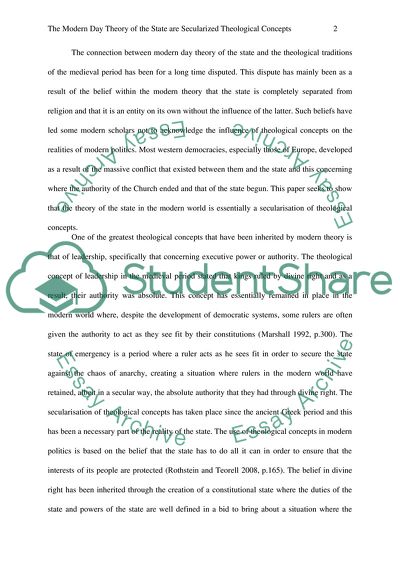Cite this document
(The Modern-Day Theory of the State is Secularized Theological Concept Essay, n.d.)
The Modern-Day Theory of the State is Secularized Theological Concept Essay. https://studentshare.org/religion-and-theology/1862043-all-significant-concepts-of-the-modern-day-theory-of-the-state-are-secularised-theological-concepts-discuss
The Modern-Day Theory of the State is Secularized Theological Concept Essay. https://studentshare.org/religion-and-theology/1862043-all-significant-concepts-of-the-modern-day-theory-of-the-state-are-secularised-theological-concepts-discuss
(The Modern-Day Theory of the State Is Secularized Theological Concept Essay)
The Modern-Day Theory of the State Is Secularized Theological Concept Essay. https://studentshare.org/religion-and-theology/1862043-all-significant-concepts-of-the-modern-day-theory-of-the-state-are-secularised-theological-concepts-discuss.
The Modern-Day Theory of the State Is Secularized Theological Concept Essay. https://studentshare.org/religion-and-theology/1862043-all-significant-concepts-of-the-modern-day-theory-of-the-state-are-secularised-theological-concepts-discuss.
“The Modern-Day Theory of the State Is Secularized Theological Concept Essay”. https://studentshare.org/religion-and-theology/1862043-all-significant-concepts-of-the-modern-day-theory-of-the-state-are-secularised-theological-concepts-discuss.


